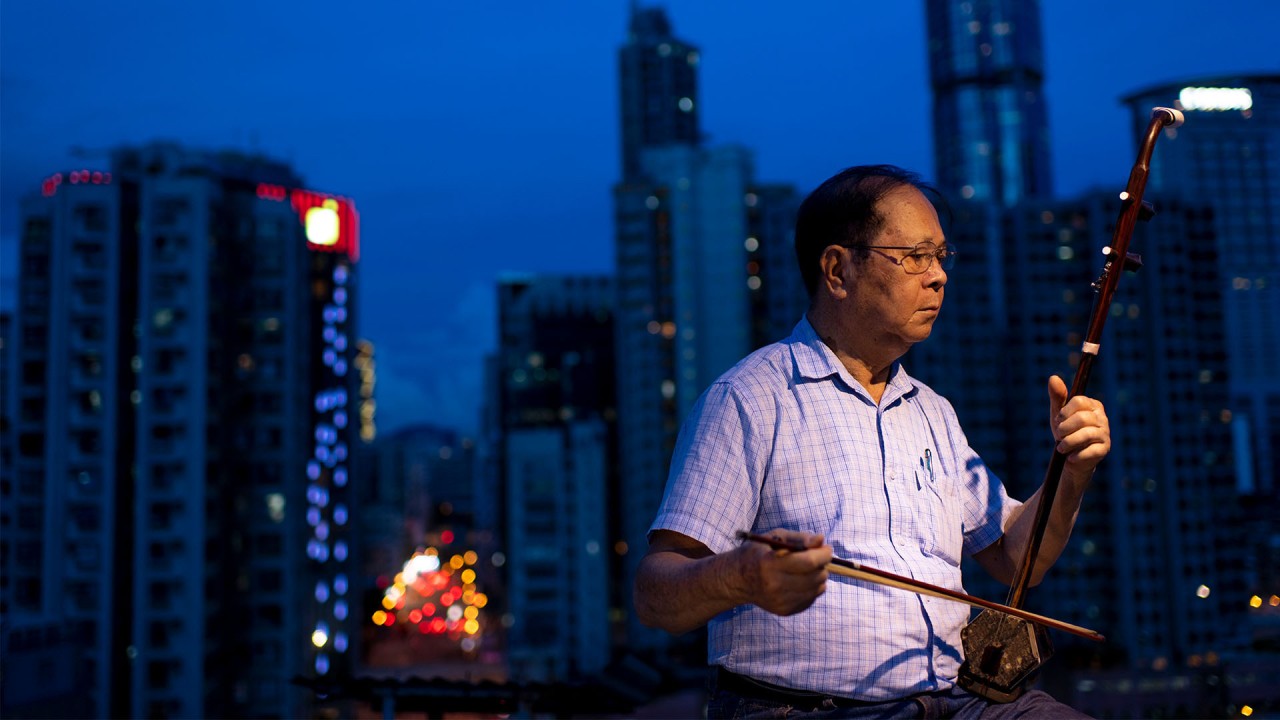
Hong Kong erhu craftsman spent decade learning to made perfect traditional Chinese instruments
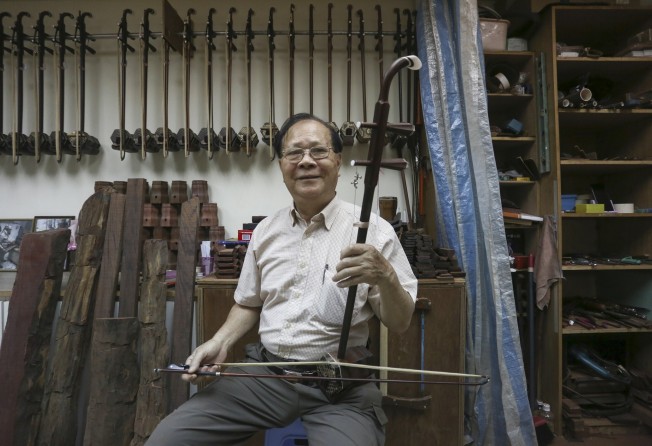
Inside a small workshop packed with cupboards and a carpenter’s bench, 76-year-old Tong Man-hak carefully measures pieces of wood and places them precisely before using an electric saw to cut them. His meticulousness is crucial in making an erhu, a traditional two-stringed Chinese musical instrument.
“A good erhu resonates well and won’t sound out of tune,” he says. Tong should know. The erhu maker, one of the few left in Hong Kong, has been learning and mastering the skill over the past decade all by himself through trial and error. That he worked as a carpenter making Chinese furniture for 30 years helps.
His love of the instrument began as a teenager in Guangxi in southwest China, where he watched others play the erhu.
“A group of people playing together sounds so beautiful and I wondered if I could play it too,” he says.

Hong Kong erhu craftsman spent decade learning to made perfect traditional Chinese instruments
“In the school dormitory on the weekends I learned how to play the erhu on my own. I first learned to play very simple tunes and then figured out how to get the sound right. Even if there was a teacher available, I wouldn’t have been able to afford to pay him or her.”
Tong was born in 1944 in Guangxi towards the end of the Second Sino-Japanese war as his mother was fleeing China; his father was killed in a plane bombing before he was born. A newborn was too much for his 19-year-old mother to handle, so she left Tong in the care of a family that she trusted.
Tong’s mother came to Hong Kong a year later and earned her living sewing in factories. She kept in touch with her son through letters and sent him whatever extra money she could.
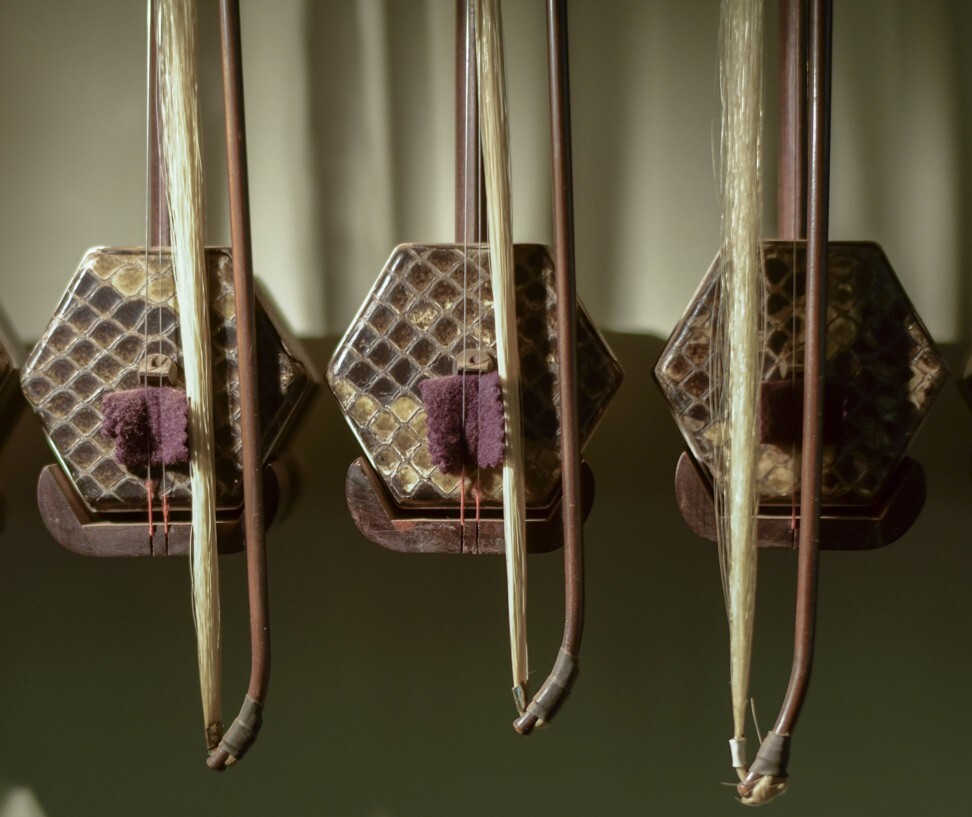
Thirty-five years later Tong emigrated to Hong Kong with his eldest son and daughter; his wife and younger son joined them three years later.
When Tong settled in the city in 1980, he saw his mother for the first time in person. “I was already almost 40 years old and she was 60. She already had another family,” he says, his eyes welling up.
“I didn’t want to burden her. She was relieved and pleased to see I could look after myself and have a family, and eventually buy a flat. Seeing my children going to school, she was happy,” he says.
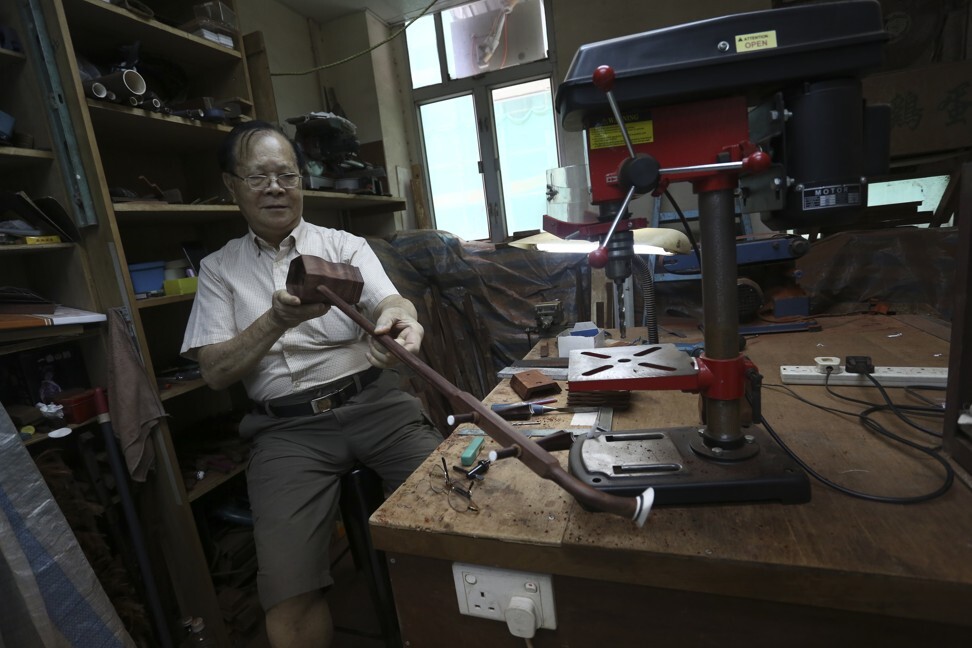
Tong carved out a productive 30-year career in woodworking, with demand for furniture on the rise in Hong Kong in the 1980s. But he didn’t have time to start playing the erhu again until he retired at the age of 60.
“I had money to buy an erhu, a very nice one. It’s not hard to pick up again,” he says. “I learned when I was 18 or 19 years old and stopped playing for decades. But playing it again is much like riding a bike or swimming, you don’t lose the skill.”
More than 10 years ago Tong took his erhu with him to China to visit relatives and friends.
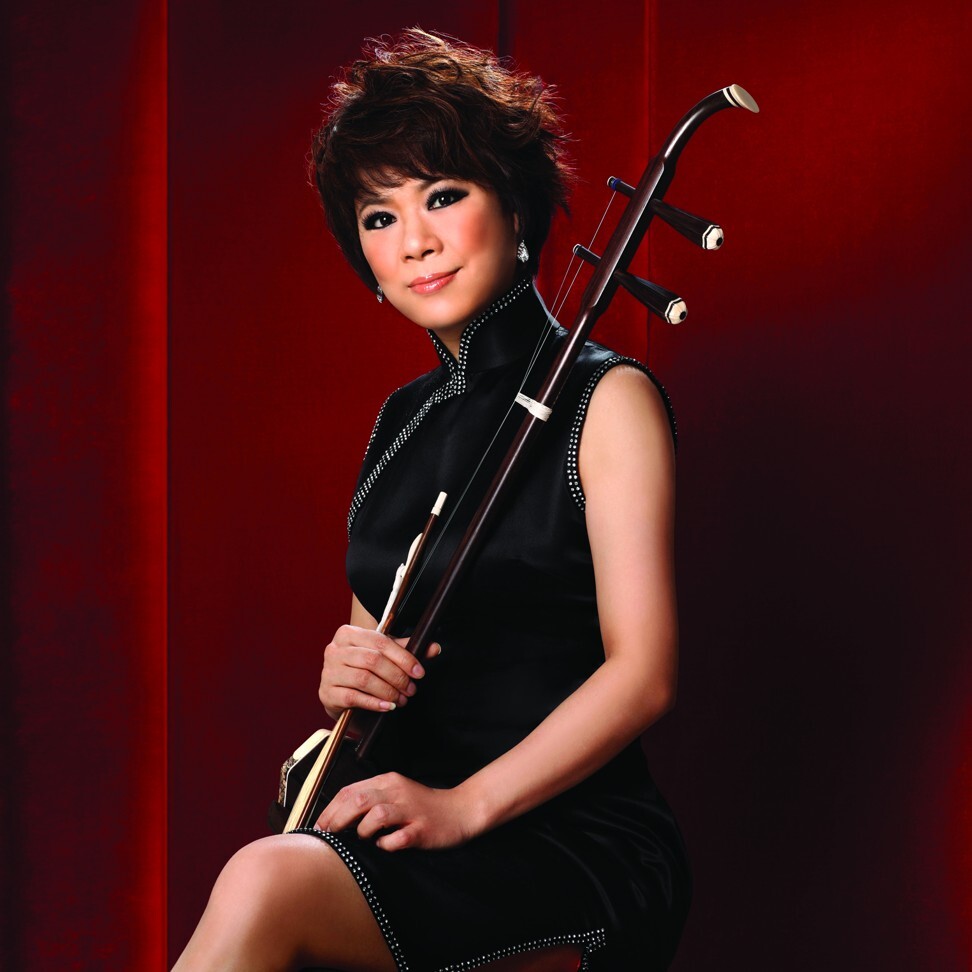
“But when I was at the railway station, I was helping my friends carry some luggage and left my erhu behind. When I returned to my seat to look for it, the erhu was gone,” he says.
“I tried to commission someone on the mainland to make an erhu for me, but the quality wasn’t good. So my friends encouraged me, saying, ‘You’re a good carpenter. Why don’t you make one yourself? Give it a try.’”
Tong’s first attempt at making an erhu failed, but each successive one got better. “You could say that one little mistake will ruin an entire erhu. That’s why it took me over a decade to reach high standards.”
The instrument’s hexagonal body is made from pieces of hard wood Tong sources from Yunnan in southwest China and Cambodia. He cuts the sides of the wood pieces at exactly 60 degrees and when he assembles them together, he makes sure no light penetrates the edges.
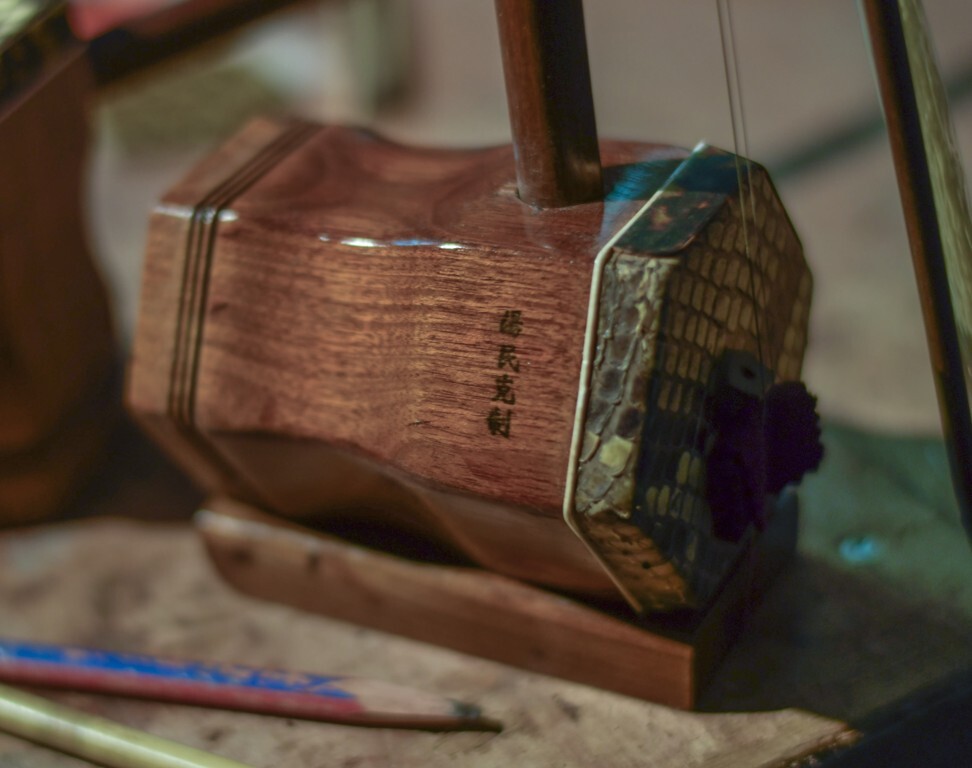
Once these panels are sealed with glue, he covers one of the hexagonal holes at either end of the body with snakeskin. The snakeskin is sourced from Suzhou in eastern China, which he soaks in water mixed with chemicals for several hours to degrease it. He then fastens the skin over the hole tightly like a drum.
The knobs for the strings he sometimes makes himself, or fancier ones are fashioned by specialist woodcarvers. The bows are made by a bowmaker.
Over the past 10 years Tong has perfected his craft; in the last two years has sold some 20 erhus that were priced between HK$4,000 (US$520) and HK$22,000. Well-known erhu player Hsin Hsiao-ling has performed with one of his instruments.
Tong is very happy to go to his workshop in Tai Kok Tsui in Kowloon every day after breakfast, where he spends several hours working on his erhu. Completed ones hang on one wall.
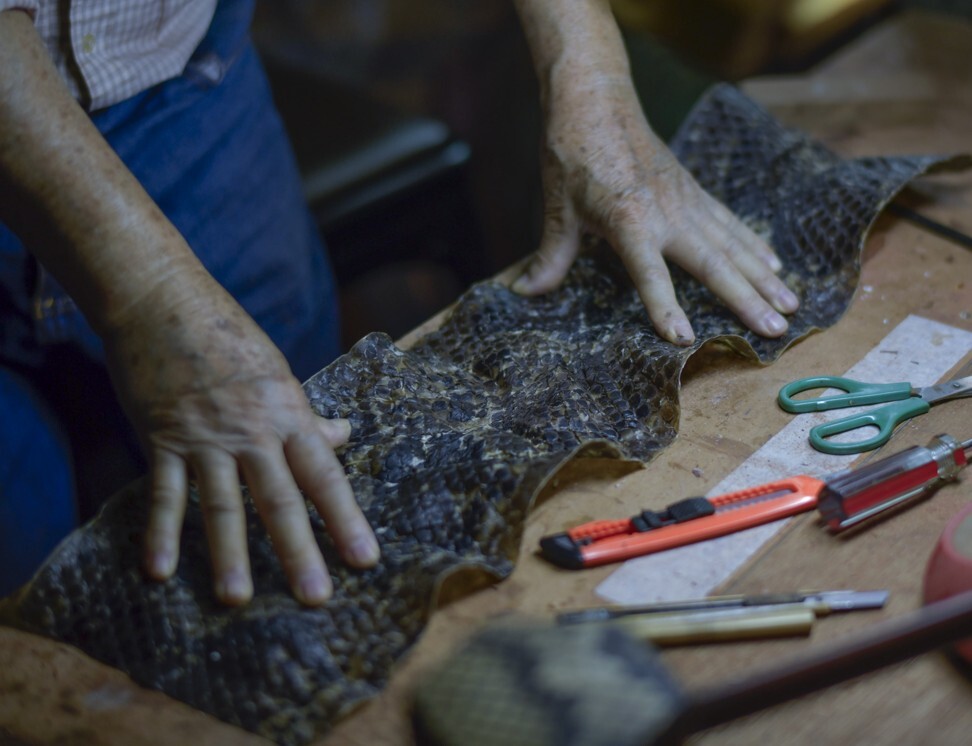
This year one of his erhus was going to be showcased at Music Guangzhou, a music and musical instruments expo in southern China, but the event was cancelled because of the coronavirus pandemic.
“I was hoping to show them that in Hong Kong, we can make good erhus,” he says. But that will have to wait.
Tong doesn’t have any apprentices, and he is concerned that there won’t be anyone left in Hong Kong who can make erhu.
“I have worked very hard to make them, so it will be a pity when no one makes them,” he says. “You can’t just learn how to do it in three years.”